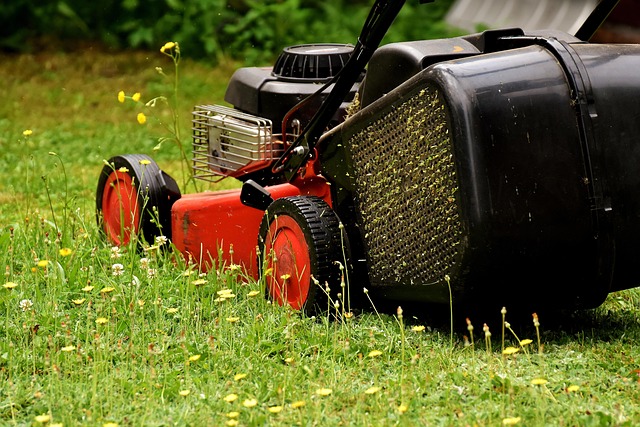Responsibly managing yard waste through composting, recycling, and using eco-friendly tools reduces environmental impact. Sorting and diverting materials like organic compost, non-organic chips, plastic, metal, and glass bottles minimizes landfill waste and greenhouse gas emissions, fostering a healthier local ecosystem.
In today’s eco-conscious world, responsible yard maintenance is more important than ever. This guide explores sustainable practices focused on minimizing your environmental footprint while discussing effective strategies for yard waste removal and recycling. From understanding the impact of yard waste to specific recycling methods for common materials, we provide practical insights to help reduce your ecological burden.
- Understanding Yard Waste Impact and Reduction Strategies
- Effective Recycling Methods for Common Yard Materials
- Sustainable Practices to Minimize Environmental Footprint
Understanding Yard Waste Impact and Reduction Strategies

Yard waste, including grass clippings, leaves, and branches, can have a significant impact on the environment if not managed properly. When sent to landfills, organic yard waste decomposes anaerobically, producing methane, a potent greenhouse gas that contributes to climate change. However, understanding and implementing sustainable practices in yard maintenance can help reduce this environmental footprint.
Effective strategies for yard waste reduction include composting, which turns organic material into nutrient-rich soil amendments, and recycling programs that collect and process materials like leaves and grass clippings for use in various industries. Additionally, proper landscaping techniques, such as selecting native plant species and reducing lawn areas, can minimize yard waste generation while promoting a healthier local ecosystem.
Effective Recycling Methods for Common Yard Materials

Effective Recycling methods for common yard materials play a crucial role in sustainable yard maintenance. Instead of relying on traditional Yard Waste Removal practices, homeowners and landscapers can significantly reduce environmental impact by implementing on-site recycling strategies. One simple approach is to compost organic materials like leaves, grass clippings, and food scraps from kitchens. This process not only diverts waste from landfills but also enriches soil with essential nutrients, promoting healthier plant growth.
For non-organic materials such as wood chips, small branches, and old garden furniture, chipping and shredding can transform them into valuable mulch or soil amendments. These recycled products help suppress weeds, conserve moisture, and improve soil structure. Additionally, proper sorting and collection of recyclable items like plastic pots, metal hardware, and glass bottles ensures these materials are processed effectively, reducing pollution and conserving resources for future use.
Sustainable Practices to Minimize Environmental Footprint

Incorporating sustainable practices into yard maintenance routines is a powerful way to minimize your environmental footprint. One effective strategy is implementing responsible yard waste removal and recycling. Instead of relying on traditional methods that often lead to decomposition in landfills, consider composting. Organic matter from grass clippings, leaf debris, and food scraps can be transformed into nutrient-rich compost, which serves as a natural fertilizer for your lawn and gardens. This reduces the demand for synthetic fertilizers and diminishes greenhouse gas emissions associated with waste disposal.
Additionally, opt for eco-friendly tools and equipment whenever possible. Choose hand tools like rakes, shovels, and shears over motorized alternatives to cut down on fuel consumption and noise pollution. When new machinery is necessary, invest in electric or battery-powered options that are more environmentally friendly than their gas-guzzling counterparts. By embracing these sustainable practices, you contribute to a greener planet while maintaining a thriving outdoor space.
By adopting sustainable yard maintenance practices, such as understanding the impact of yard waste, implementing effective recycling methods, and minimizing our environmental footprint, we can contribute to a greener planet. Through proper Yard Waste Removal and Recycling strategies, we not only reduce landfill contributions but also foster a healthier ecosystem. These practices ensure that common yard materials are reused or recycled, promoting a more sustainable future for both our communities and the environment.














